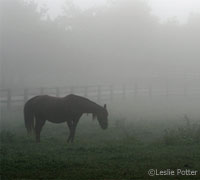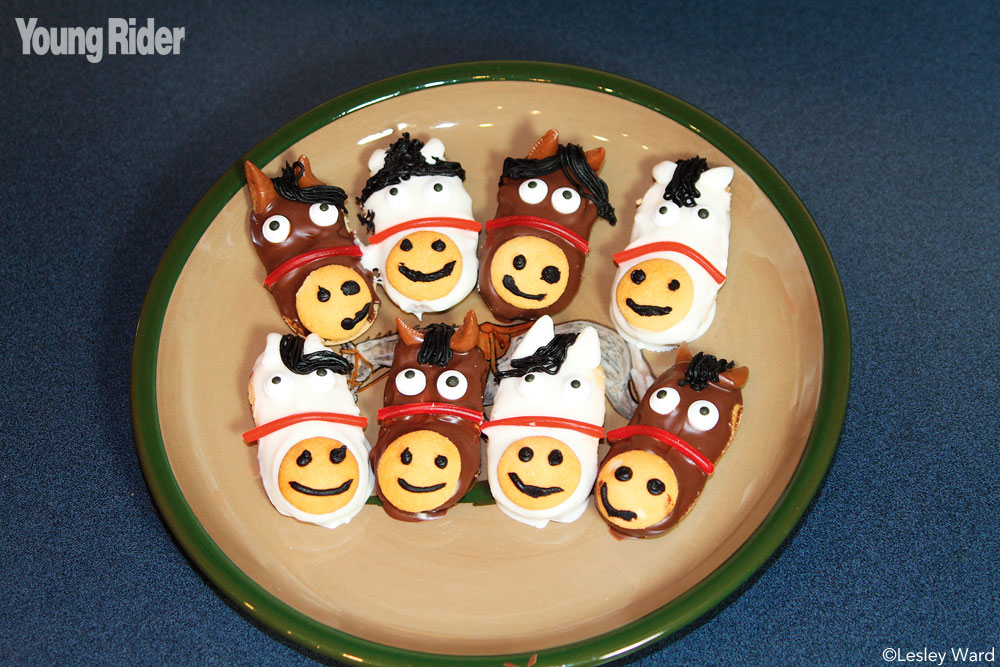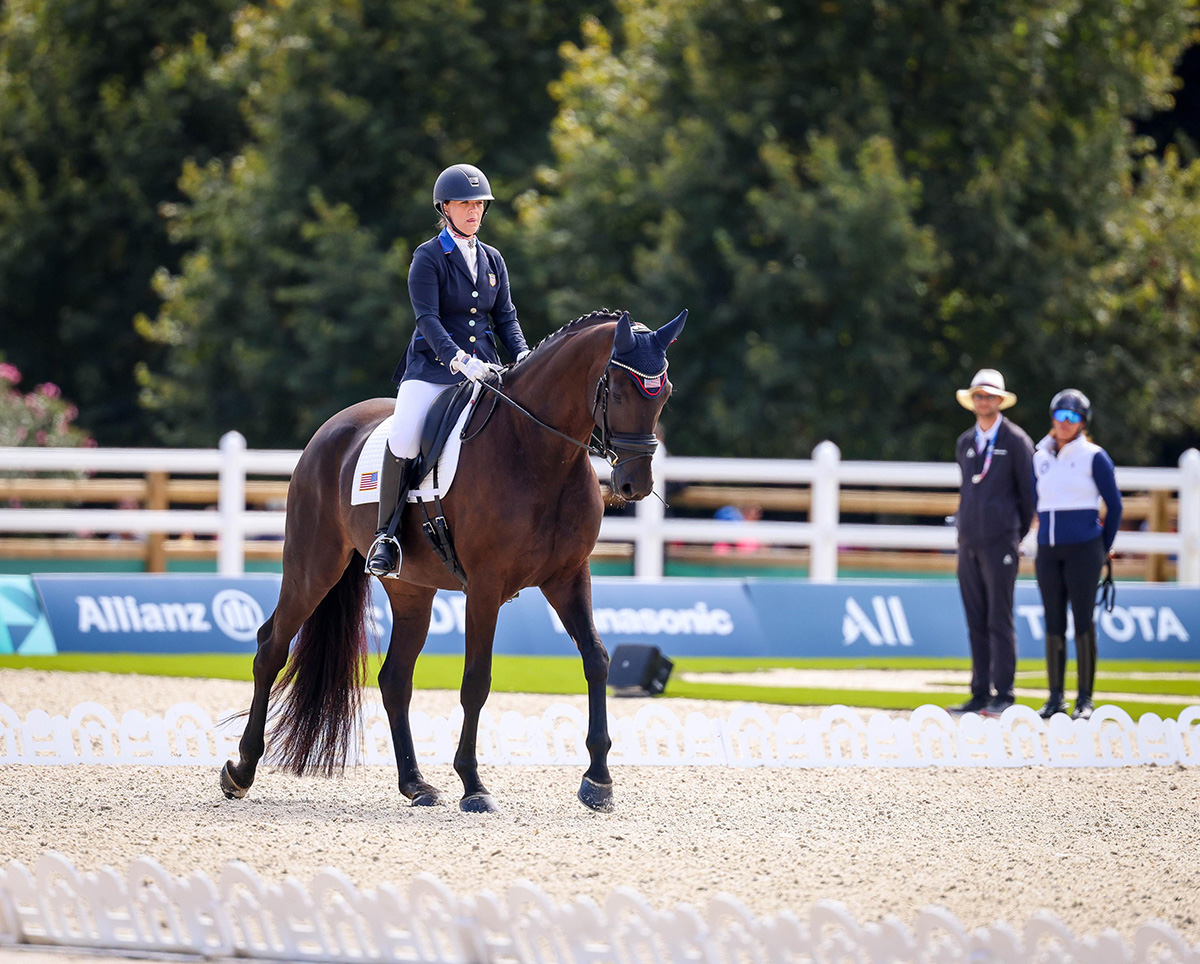 Planning for the end of your horse’s life seems unpleasant or even morbid, especially when he is still young, healthy and active. However, most horse owners will outlive their equines, and making a plan now will make a difficult day in the future less stressful.
Planning for the end of your horse’s life seems unpleasant or even morbid, especially when he is still young, healthy and active. However, most horse owners will outlive their equines, and making a plan now will make a difficult day in the future less stressful.
British charity World Horse Welfare has published two brochures on the topic of making end-of-life decisions for your horse as part of a new campaign called “Just in Case.” The first brochure, called “Just the Facts,” outlines the facts surrounding the euthanasia decision, the process of putting a horse to sleep, and disposal of the horse after euthanasia. The second, “Owner’s Plan,” is a guide to be filled out by a horse owner that keeps all of the information related to end-of-life decisions in one place. This helps the owner by keeping the information readily available in case of emergency and can also be given to a stable manager in case tragedy strikes and the owner is unreachable.
Here are some of the end-of-life considerations outlined in World Horse Welfare’s literature.
Methods of Euthanasia. There are two accepted methods of euthanasia for equines: injection and gunshot. In most cases, a vet will administer a lethal dose of anesthetic, causing the horse to slip into a coma before he passes away. In other situations, a bullet is discharged into the horse’s brain, killing him instantly. Either method is painless for the horse when done correctly. In most cases, a horse is euthanized by injection, but there are situations where that method may not be practical, such as when a vet cannot reach the horse in time. The brochure “Just the Facts” explains these methods and the considerations for each.
Should You be There? You may feel as if you are abandoning your horse by not being with him in his final moment, but consider if that is truly the best thing for you and him. Even if you feel certain that you would want to be with him, you may feel differently when the moment arrives. It’s a good idea to have a backup person in mind, such as a barn manager or relative capable of handling horses, who can step in to hold your horse for the vet if you are unable to do it yourself.
What Happens after Euthanasia? The unfortunate reality is that after your horse has been put to sleep, you will have to deal with the immediate concern of what to do with his remains. Know ahead of time if it is possible and legal to bury a horse on your farm’s property. Consider the logistics of doing so, including what to do if your horse passes away when the ground is frozen. Make sure you have contact information for a rendering plant or an animal crematory that accepts horses. Research the cost ahead of time and keep that information in your Owner’s Plan. It is a difficult process to think about today, but you certainly won’t want to have to deal with it on the day you lose your horse.
The brochures are written for a British audience, so some issues described may not apply to North American horse owners. However, the general information and considerations for end-of-life planning are universal.
To view and download the two brochures, click here.
For more information on making end-of-life decisions for your horse, click here.
For resources on dealing with the loss of a horse, click here.






It’s really a good thing for people to think about this. I hate it when I go on Craigslist and see old horses “free to a good home for retirement” because their owner doesn’t want to deal with a horse dying. You should care for your horse until their dying day, even though it may be sad.
It is just a suggestion, in your will, outline who is to care for the animal/animals until their end of time has come, if it is not a natural passing, decide how it is to be done. Also will enough money to that person/persons to adequately support the animals to their end of life. Disposal can be determined by the new caretakers or also explained in the will. Your animals, no matter what kind, are your family too. The ‘humans’ may get a twing when the animals get more money than they do but …. oh well.
Well, I know what I’m going to do. My horse has a life here until he dies.
im only going to put my horse down if its impossible to save him, i would never put my horse down becaouse he was an incureble bucking problame like other people do!!! that kills me!!!
It is good that there is helpful information available. I had to deal with this issue this past summer. My dearly loved old quarter horse Bojack had to be put down. I’d raised him from the day he was born April 18, 1979. He was 31 years old. I lost him on Sept. 16, 2010. He was in great shape most of his life. He began to fail in early Sept. He had worked his way down to the bottom of a very steep ravine in the pasture. The horses had never gone there before. I believe he knew the end was near and had separated himself from the herd for this final act. I called the vet and my good friends to help me, but when he tried to climb the bank, he collapsed and the vet put him down as I cried and told him how sorry I was and how much I loved him. Having him for over 31 years was like losing a member of the family. There is no easy way to deal with this kind of situation, but I will try to have written instructions for the care of my other horses and pets should I die before them. They are worthy of respected end of life decisions.